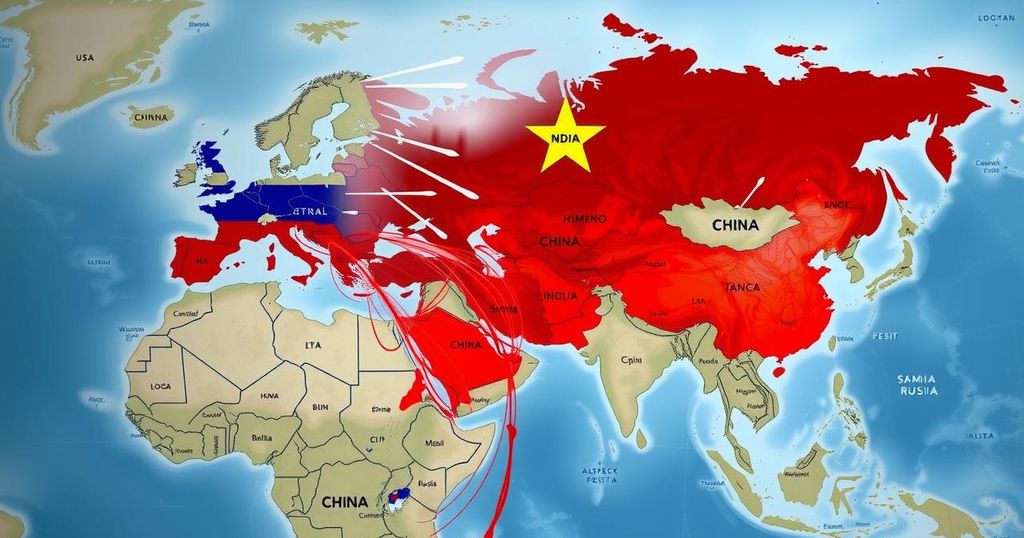Politics
AMERICAS, ASIA, CHEN AIZHU, CRUDE OIL IMPORTS, EUROPE, EUROPE/ASIA, FLORENCE TAN, GEOPOLITICS, GLOBAL ECONOMY, IRAN, KPLER, MATT WRIGHT, NI, NIDHI VERMA, OIL PRICES, REUTERS, RUSSIA, S. SANCTIONS, SANCTIONS, SI, SINGAPORE, SIYI LIU, SURGUTNEFTEGAS, TRADE, TREASURY, UKRAINE, WRIGHT
Nia Simpson
U.S. Sanctions on Russian Oil Drive China and India Towards Alternative Supply Sources
Recent U.S. sanctions on Russian oil producers and tankers are pushing Chinese and Indian refiners to source oil from the Middle East, Africa, and the Americas. This shift is expected to increase oil prices and freight costs. The sanctions could severely impact Russian oil exports, forcing refiners to seek compliant alternatives amid rising global oil demand.
In response to the recent U.S. sanctions targeting Russian oil producers and tankers, refiners in China and India are poised to increase their oil procurement from alternative sources, namely the Middle East, Africa, and the Americas. The U.S. Treasury introduced sanctions against Gazprom Neft and Surgutneftegas, alongside restrictions on 183 vessels associated with Russian oil shipments. This move aims to undermine the revenue supporting Russia’s ongoing military actions in Ukraine. Consequently, the new sanctions are anticipated to drastically affect the availability of Russian oil exports, forcing independent Chinese refiners to curtail their refining activities.
According to Kpler’s freight analyst, the sanctioned vessels accounted for over 42% of Russia’s total seaborne crude exports last year, a significant volume of which was directed to China and India. As a result, the sanctions are likely to escalate freight costs as the number of ships capable of transporting Russian crude is substantially reduced. The impact on supply chains is evident, as India witnessed a 4.5% increase in imports of Russian crude recently.
Analysts predict that if sanctions on Russian ESPO Blend crude are vigorously enforced, China and India may explore more compliant oil markets. Rising spot prices in the Middle Eastern, African, and Brazilian oil markets indicate already increasing demand. As a result, Indian refiners are likely to pivot towards Middle Eastern oil, with some even considering procurement from U.S. sources, thereby altering the dynamics of international oil trade.
The context of this situation is rooted in the geopolitical tensions following Russia’s military actions in Ukraine, which have prompted Western nations to impose sanctions aimed at restricting Russia’s oil revenue. The sanctions specifically target significant Russian oil producers, impacting countries that have increasingly relied on Russian oil, such as China and India. Conditional shifts in global oil supply chains are anticipated as these countries seek alternatives to maintain their energy security without relying on restricted sources. Furthermore, the sanctions are expected to heighten competition for Middle Eastern oil, resulting in price increases and logistical challenges for importing nations while further influencing the dynamics of the global oil market.
In conclusion, the newly implemented U.S. sanctions against Russian oil producers and associated vessels will significantly alter oil supply chains for key players like China and India. As these countries are forced to seek alternative sources of oil, the ramifications on global oil prices and freight costs will be considerable. The shift away from Russian oil will not only influence international trade patterns but also reshape the competitive landscape in the global oil market.
Original Source: www.usnews.com








Post Comment